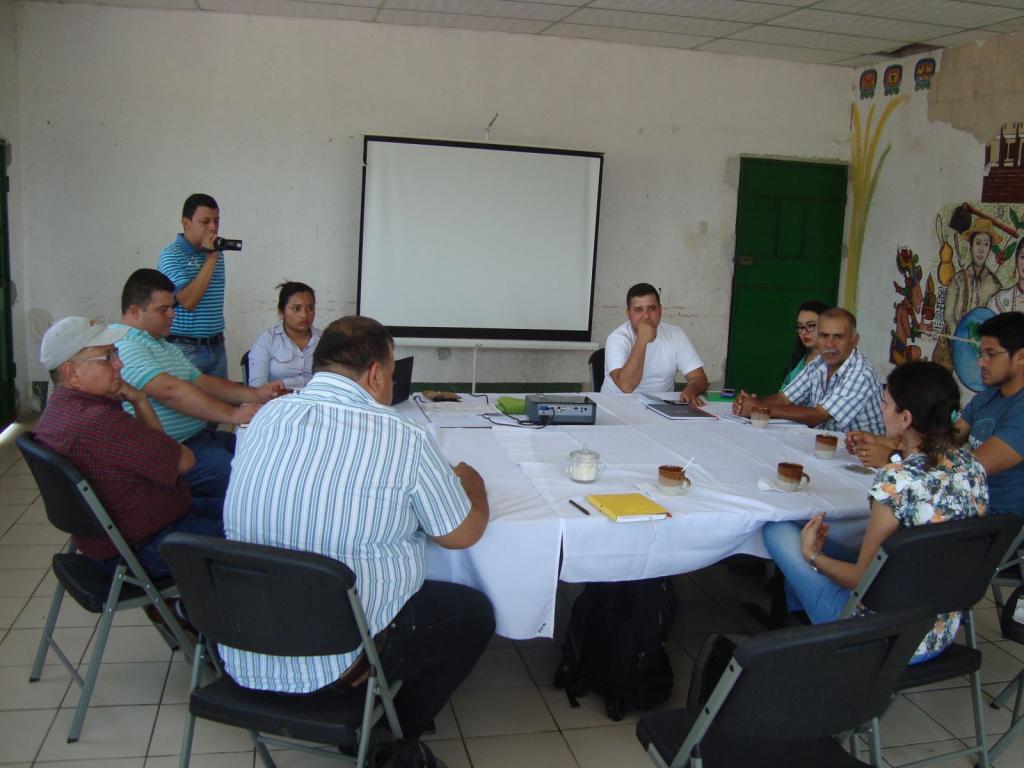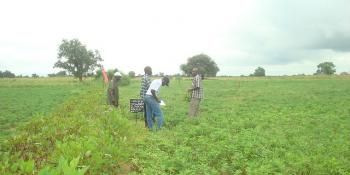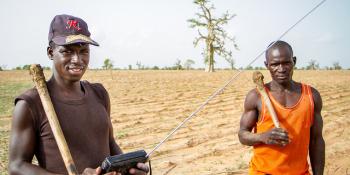Agro-climatic information for decision making: can we get it right?

How to succeed in communicating climate information with users in Guatemala
In Guatemala, drought has always been part of farmers’ reality. But drought in Guatemala is changing its pattern and challenges traditional agricultural knowledge of farmers and decision-makers alike. Drought can have significant impacts on agricultural production with severe consequences for farmers’ income, food security and livelihoods – if not managed adequately and in a timely manner. In 2015 alone, it has been estimated that 150.000 families lost between 50% and 100% of their harvest to drought. To support drought management strategies that improve adaptation, prevention and response and assure food security, the “right” information for farmers and decision-makers is crucial.
In Central America and Guatemala, many climate information products exist. But do these products really provide the necessary information to farmers and decision-makers to take adequate action?
AgroClimas, a project of the CGIAR Research Program on Climate Change, Agriculture and Food Security (CCAFS) is seeking the answer to that problem. The project aims to bridge the gap between agro-climatic information generation and its users among farmers and decision-makers in public institutions.
The answer, however, is not that simple.
In order to better understand how much information products are tailored to users’ needs, we conducted semi-structured interviews with 40 key stakeholders to analyze and evaluate the usability of 18 existing agro-climatic and food security information products.
We found that the products do in fact work but that they also have several limitations in terms of usability. Users identified several options for improving individual products:
- including sources of information and details of analytical procedures;
- improving structure, language and graphic elements;
- assuring a timely distribution of the product;
- defining more specific conclusions and recommendations to guide decision making;
- and defining production and marketing practices for agricultural products.
The AgroClimas team presented the results of the study to the Ministry of Agriculture, Livestock and Food (MAGA), the National Meteorological service (INSIVUMEH), the Famine Early Warning Systems Network (FEWS NET) and the Secretariat of Food and Nutrition Security (SESAN), the key emitting institutions identified by the study. Apart from transferring knowledge generated by the study, the presentations also aimed to validate the results and discuss opportunities for product improvement and open research questions.
Sharing results regarding opportunities to improve agroclimatic and food security information products in Guatemala with: MAGA, FEWSNET, INSIVUMEH, SESAN. Photo: D. Giraldo (CIAT)
Highlights of the stakeholder sessions
1. Each institution received a tailor-made document with results and key messages to improve their information products.
2. The institutions learned about the role and relative importance of their information products and they got a better idea on where to start with user-centered and very simple product improvements:
- MAGA, for instance, observed that decision-makers do not give that much attention to the very time- and resource-consuming information products. They agreed that very simple changes, such as including an executive summary and key messages, would significantly improve their product’s usability.
- Some of these suggested changes have already been included into PronosticoSAN, SESAN’s main information product providing climate, crop and food security information. The next step includes improving graphs and maps, following users’ recommendations.
3. Discussions with stakeholders also gave room for ideas about key research gaps:
- Data is often unavailable at local scale so it is difficult to reach conclusions at municipal or community level. They require better information from weather stations and satellites, along with improved methodologies on how to extrapolate and disaggregate information. INSIVUMEH, for instance, is working on decentralizing its information products to supply decisionmakers at local level with necessary agro-climatic information.
- Emitting institutions need to improve their data management and analysis capacity in order for better data quality and credibility. FEWS NET, for example, is already making progress, having good opportunities to build on synergies with CGIAR scientists to strengthen knowledge transfer and capacity building.
4. We found a welcoming environment to talk about collaborations and project ideas, as stakeholders’ needs became clear. We discussed the idea of an interinstitutional roundtable on agro-climatic and food security information to articulate and strengthen the different initiatives around the topic (e.g the roundtable for crop monitoring and the roundtable on food security). One of the most striking results of the study was that the key information products circulate mainly at central level and are rarely used by decision-makers in the regions. An initiative that connects local institutions with the central agencies emitting climate information product could close this gap.
Key lessons learned
- Communicating directly with stakeholders for research projects helps lead to positive outcomes.
- Obtaining feedback from stakeholders helps verify study results, discover new recommendations and identify obstacles for implementation of changes, as well as understand the relevance of our research for practitioners. Users also provide input on further research needs. This interaction is particularly useful in small-sample studies.
- These types of activities also strengthen relationships with stakeholders in our project in Guatemala and ultimately improve the credibility of our research.
Download the publication (in Spanish): Bouroncle C, Girón E, Imbach P, Müller A, Pérez S, Portillo F, van Etten J. 2017. Oferta y demanda de información para la gestión de las sequías en el Corredor Seco de Guatemala: ¿cuál es la percepción de los tomadores de decisiones?. Documento de trabajo CCAFS no. 203. CCAFS.
CONTACTS: Anna Müller, PhD, Bioversity International (a.muller@cgiar.org), Diana Giraldo, CIAT, (d.giraldo@cgiar.org), and Claudia Bouroncle, Consultant and lead author of the study (Claudia.bouroncle@catie.ac.cr)
Read more:
- Project page: Tailored agro-climate services and food security information for better decision making in Latin America
- Publicaciones relacionadas con Servicios agroclimáticos e información de seguridad alimentaria para una mejor toma de decisiones (AgroClimas) (Spanish)
- ¿Qué tan resilientes son los agricultores de fríjol en un clima cambiante? (Spanish)
- Historias relacionadas conServicios agroclimáticos e información de seguridad alimentaria para una mejor toma de decisiones (AgroClimas) (Spanish)
Diana Giraldo is the leader of the AgroClimas project.




